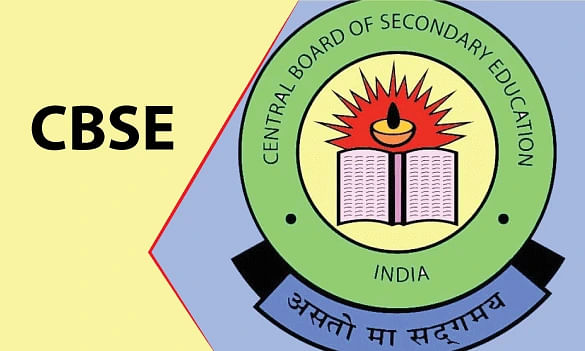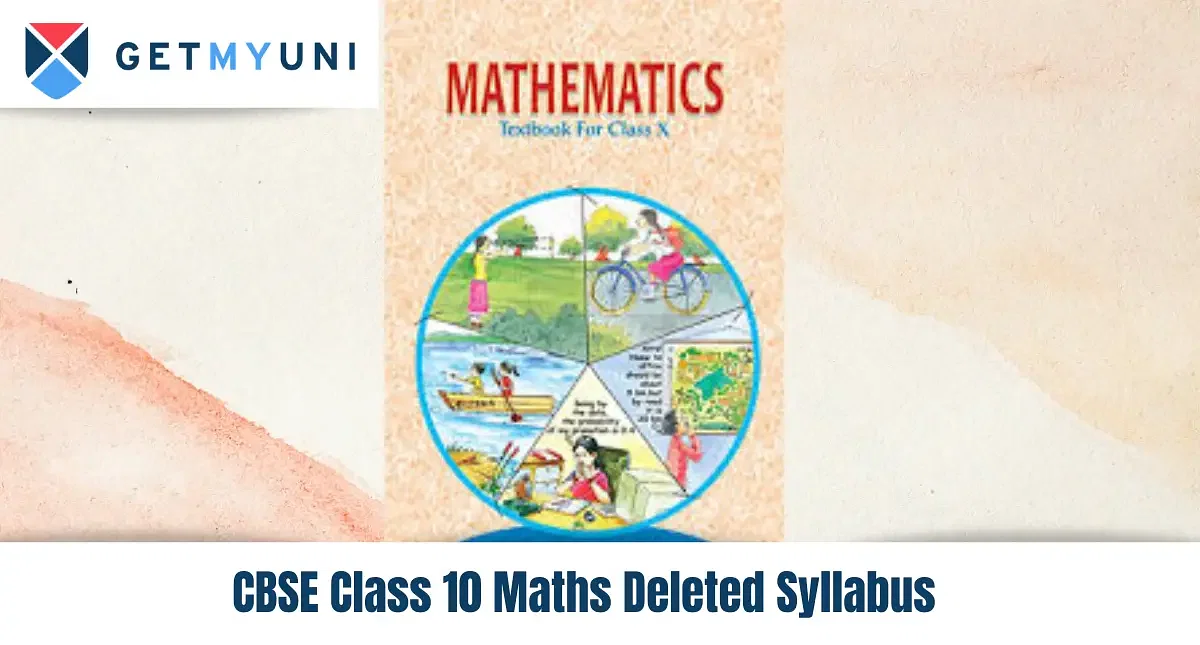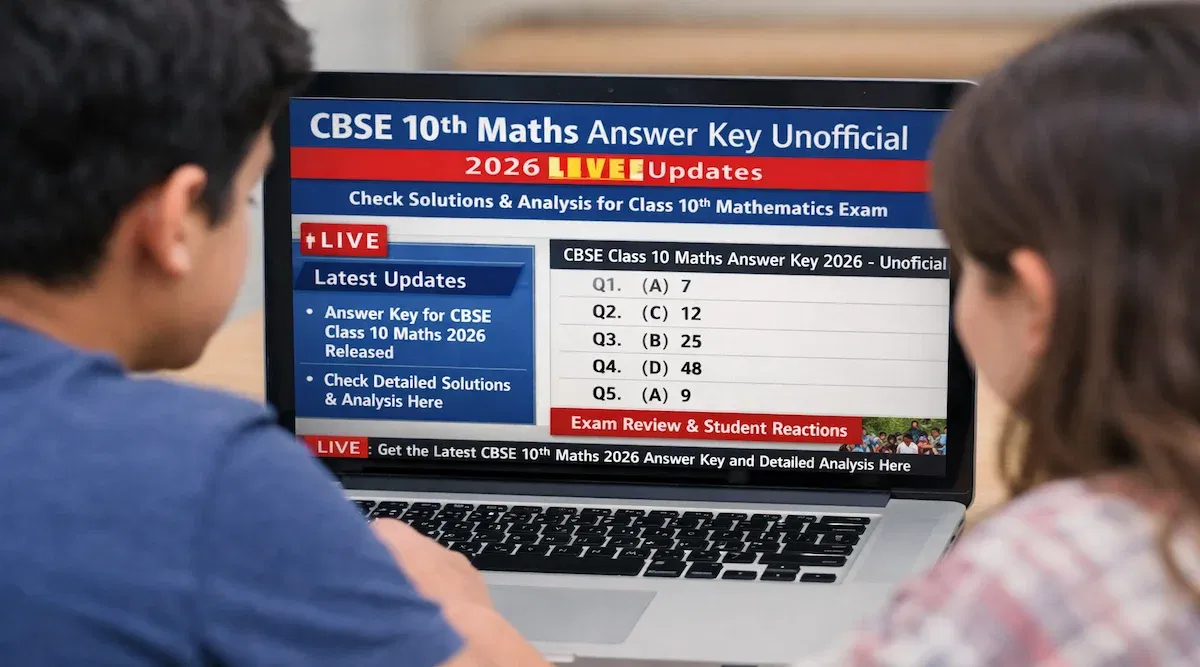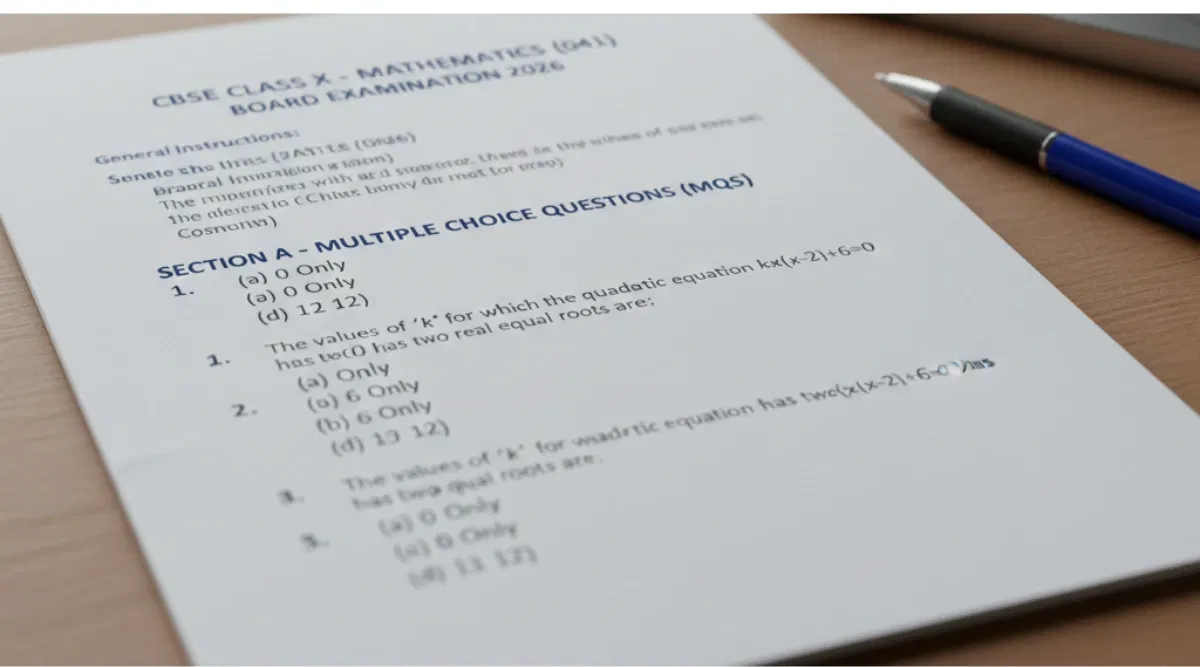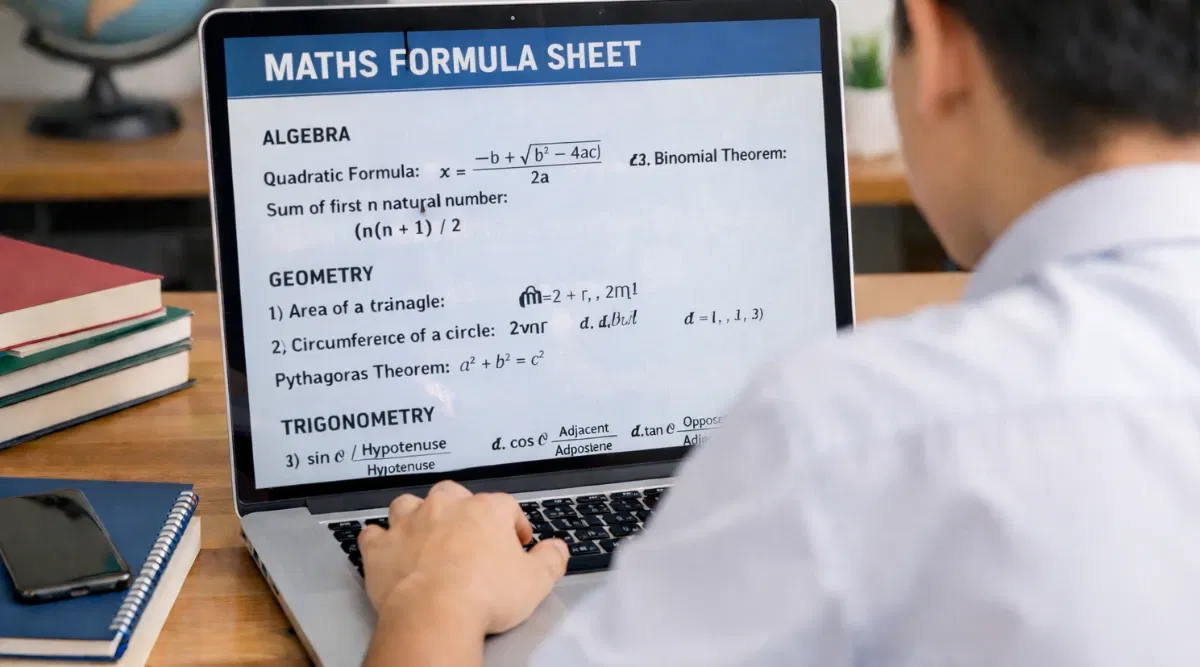CBSE Class 10 Chemistry Latest Syllabus 2026: Download Latest and Revised CBSE Class 10th Chemistry Syllabus PDF
Table of Contents
The chemistry syllabus class 10 CBSE 2025-26 includes important chapters such as chemical reactions, equations, acids, bases, salt, metals, non-metals, and many more. The syllabus is divided into five units and encompasses thirty subtopics. Students appearing for the CBSE class 10 exam must cover the whole syllabus.
The CBSE class 10 2026 Chemistry syllabus gives students a sound knowledge of all the Chemistry topics for class 10th exams. Further, it covers the list of important experiments that are required to be covered during the session. Candidates should review the syllabus thoroughly to know the chapter-wise marking distribution, practical details, and more.
CBSE Class 10th Chemistry Syllabus 2026
In the class 10 Science syllabus 2026, Chemistry is included under the Science subject with the unit name - 'Chemical Substances-Nature and Behaviour'. The chapters under Chemistry carry the highest weightage under the Science subject. A total of 25 marks is allotted for Chemistry under Science.
The CBSE class 10 Science exam carries 100 marks. The theory exam is assigned 80 marks, and the rest of 20 marks are allotted for the practical exams. Students can download the syllabus of chemistry class 10 CBSE 2025-26 in PDF format from the official website and check all the chapters and topics under the theory and practical exam.
| Particulars | PDF Link |
| CBSE Class 10 Syllabus 2025-26 Chemistry | Download Now |
CBSE Class 10 Chemistry Syllabus 2025-26: Chapters-Wise Topics
The CBSE class 10 Chemistry syllabus 2026 will help students become familiar with the chapters and topics in CBSE class 10th Chemistry. In the 10th class science textbook, Chemistry is the first unit with 25 marks. Students must refer to the table given below for further details.
| Sl.No | Chapters | Topics |
| 1 | Chemical reactions and equations | Chemical reaction |
| Chemical equation | ||
| Types of Chemical Reaction I | ||
| Types of Chemical Reaction II | ||
| Corrosion, rusting, and rancidity | ||
| 2 | Acids, bases, and salts | Types of compound acids I |
| Types of compounds Acids II | ||
| Types of compound bases | ||
| Strength of acids and bases | ||
| pH scale | ||
| Indicators for testing acids and bases | ||
| 3 | Metals and non-metals | Physical properties and Chemical properties of metals and non-metals |
| Reactivity series of metals | ||
| Uses of metals and non-metals | ||
| Ionic compounds and covalent compounds | ||
| Occurrence of metal I | ||
| Occurrence of metal II | ||
| Alloys | ||
| 4 | Carbon and its compounds | Carbon and its anomalous behaviour |
| Allotropes of carbon | ||
| Hydrocarbons | ||
| Functional groups | ||
| 5 | Periodic table | Early attempts at the classification of elements |
| The present basis for element classification- the modern periodic table | ||
| Trends based on the properties of elements | ||
| Characteristics of periods and groups | ||
| Merits of the modern periodic table |
CBSE Class 10th Chemistry Experiments List
CBSE class 10th chemistry internal assessment consists of 20 marks. Hence, students should be aware of the practical experiments as per the class 10 CBSE Chemistry syllabus 2025-26 for scoring good marks. Therefore, it is advised to give equal attention to preparing for theory and practical exams. Practical experiments help students to understand theoretical concepts a better way.
1. Aim: Find the pH using the pH paper/universal indicator of the samples mentioned below:
- Dilute Hydrochloric Acid
- Dilute NaOH solution
- Dilute Ethanoic Acid solution
- Lemon juice
- Water
- Dilute Hydrogen Carbonate solution
2. Aim: To study acids and bases (HCl & NaOH) based on their reaction with:
- Litmus solution (Blue/Red)
- Zinc metal
- Solid sodium carbonate
3. Aim: To classify based on the performance and observation of the following reactions into:
- Combination reaction
- Decomposition reaction
- Displacement reaction
- Double displacement reaction
-
The action of water on quicklime
-
The action of heat on ferrous sulfate crystals
-
Iron nails kept in copper sulfate solution
-
Reaction of sodium sulphate with barium chloride solutions
-
4. Aim: To study the actions of Zn, Fe, Cu, and Al metals on the below-mentioned salt solutions:
- ZnSO4(aq)
- FeSO4(aq)
- CuSO4(aq)
- Al2(SO4)3(aq)
5. Arranging Zn, Fe, Cu, and Al (metals) in the decreasing order of reactivity based on the above result.
Tips to Prepare Well for CBSE Class 10th Chemistry Exam
Students can follow these tips and tricks to score good marks in the CBSE class 10th Chemistry exam. It will help them to prepare for their exams effectively.
- Follow the Official Syllabus: Students must ensure referring to the official chemistry class 10 syllabus to prepare for the examination. Students can either purchase the book itself or visit the official website at ncert.nic.in/textbook to download the Chemistry 12th book CBSE PDF.
- Practice Previous Year Question Papers: Once students have studied the entire syllabus, they must practice the previous year question papers, as it helps them understand the overall exam pattern.
- Make Notes: Students must ensure they take notes during their lectures and study sessions. It helps them revise efficiently later.
- Revision: Once students have studied the entire syllabus, students must revise thoroughly. Revision helps students retain the answers, formulas, and other important aspects for a long period. It also helps them improve their answer-writing speed.
- Mark Important Topics: Students must focus on the areas most prominent in the question papers. Students must mark all the important topics, carrying more weightage, and prepare them to score higher.
- Follow a Schedule: Students must follow a practical study schedule for effective preparation. The schedule must allocate time for study sessions, breaks, and extracurricular activities.







![Motilal Nehru National Institute of Technology, [MNNIT] Allahabad](https://media.getmyuni.com/azure/college-image/small/motilal-nehru-national-institute-of-technology-mnnit-allahabad.webp)






